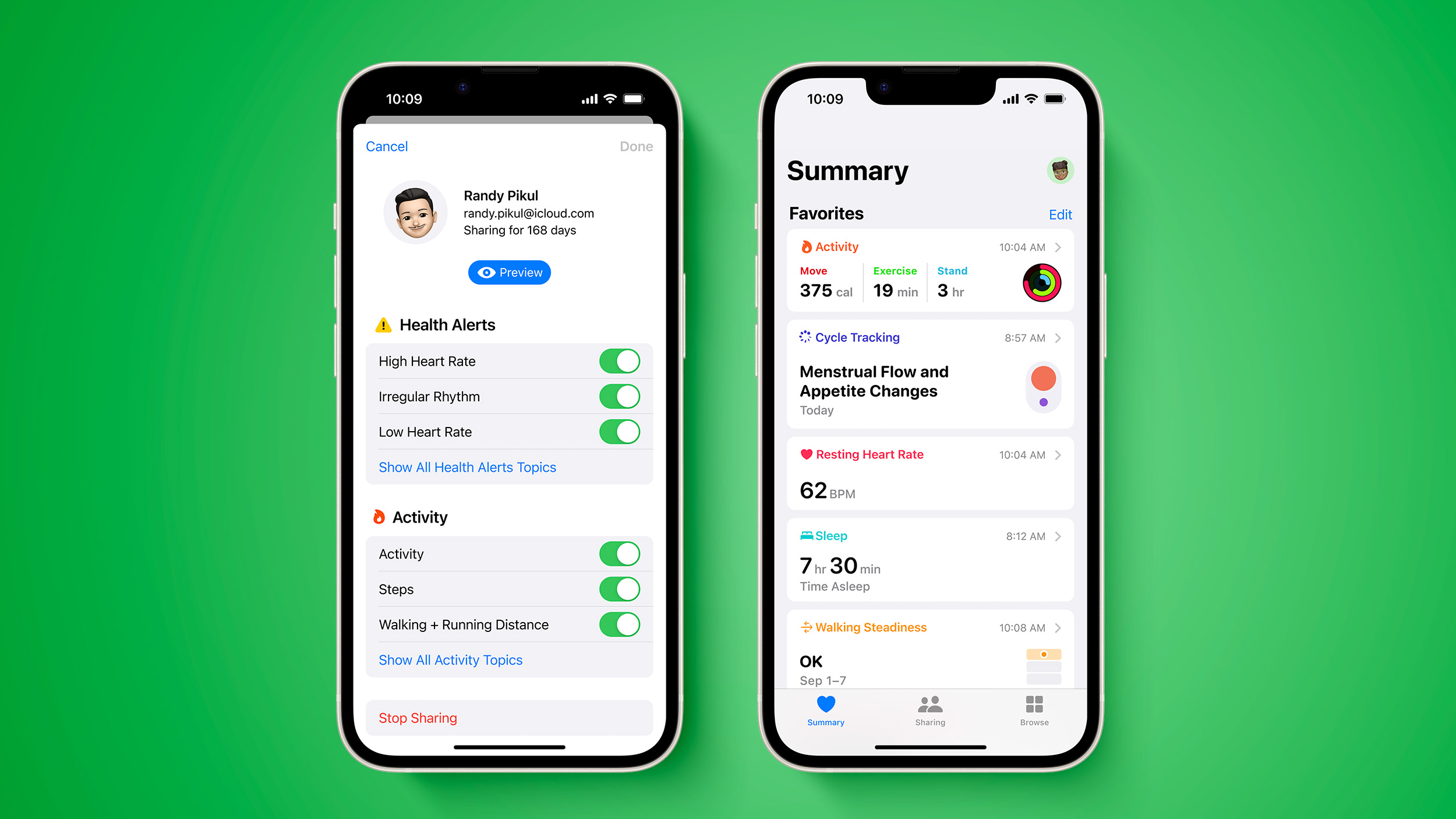05.24.2023
Apple is launching a new ad campaign today featuring the company's emphasis on health data privacy, headlined by a humorous new commercial voiced by actress and comedian Jane Lynch. The
The new campaign centers around the fact that with people knowingly and unknowingly sharing more and more about themselves online, protection of private health information has become an increasingly important issue. With Apple's built-in privacy protections across its devices and services, the company is seeking to reassure users that their health data remains secure within Apple's ecosystem.
Apple cites four pillars of privacy that apply both generally at Apple and specifically regarding health data:
- Data minimization: Only the bare minimum of health data is ever transmitted to Apple's servers, reassuring users that the vast majority of the data can not be compromised.
- On-device processing: Related to the data minimization pillar, Apple has intentionally built its products and services to perform as much data processing as possible directly on users' devices, limiting the data that needs to be sent to Apple in the first place. For example, your health highlights and trends displayed in the Health app on your iPhone are all processed on your device, which means Apple can't see them even if it wanted to.

- Transparency and control: Apple says that data is only shared with explicit user permission, and the company has built clear permission prompts to give you fine-grained control over what health data you share with whom, as well as provide reminders about the data you are sharing. With HealthKit, third-party developers seeking to access your health data must provide rationale for needing that access, must include a privacy policy, and may not use your health data for advertising purposes or sell it. Any health data these apps receive via HealthKit goes directly to the apps and does not let Apple see it as an intermediary.
- Security: All health data is encrypted on device, with the exception of Medical ID data that can be displayed on your iPhone's Lock Screen to assist first responders and others who may need to assist you in an emergency. For users have turned on two-factor authentication and a device passcode, health data transmitted via iCloud is end-to-end encrypted, meaning that only you can decrypt it with a device that's also logged in to your account, and Apple can't see it unless you explicitly choose to allow it.
Apple's new health privacy ad campaign will be running in 24 regions around the world across broadcast media, social, and billboards this summer. The company has also published a white paper with an overview of how the Health app and HealthKit protect your privacy.
Tag: Apple Ads
This article, "Apple's Latest Ad Campaign Takes a Humorous Look at Health Data Privacy" first appeared on MacRumors.com
Discuss this article in our forums
You may also be interested in this
Everything Apple Disconti…
09.16.2023
Earlier this week, Apple introduced the Apple Watch Series 9, Ultra 2, iPhone 15, and iPhone 15 Pro.… The post Everything Apple Discontinued Following the “Wonderlust” Event appeared first on
Apple Raises iCloud+ Pric…
05.26.2025
Apple recently raised prices for its iCloud+ plans in Brazil, Chile, and Peru, according to a support document updated last Thursday. The table below outlines the price changes in each
Bargain bonanza: unbeatab…
05.29.2023
This week's Amazon deals feature the premier Apple Watch Ultra with a $50 discount and come with various bands to choose from at the discounted price. Also on sale are
The iPad Pro’s battery li…
05.04.2023
Macworld When I bought my first iPad at the Apple Store on Regent Street, when it hadn’t yet been released in my home country of Sweden, it seemed an almost
Apple starts assembling i…
05.01.2023
China still accounts for most of Apple’s product production, including iPhone. However, in recent years, the company has been slowly trying to diversify its supply chain with the help of
Apple Teamed Up with Broa…
05.24.2023
Apple pioneered 5G connectivity with the iPhone 12 series that was introduced in October 2020; six months later,… The post Apple Teamed Up with Broadcom for 5G Components appeared first
More iPhones are made in …
04.10.2024
A new report indicates that 14% of iPhone units are actually assembled in India. This is part of Apple reducing its dependence on China. (via Cult of Mac - Apple
Apple will not buy Disney…
06.07.2023
The rumor that Apple will buy Disney is old enough to buy an overpriced beer at EPCOT. And, after Disney's Bob Iger appeared at WWDC, it's back yet again, this


